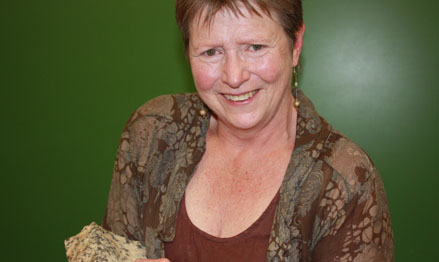Latest News Archive
Please select Category, Year, and then Month to display items
![]()
With the University of the Free State (UFS) academic programme suspended and following guidelines by the UFS Coronavirus (COVID-19/SARS-CoV-2) Task Team to minimise the gathering of people in one place, all UFS libraries will be closed from Friday 20 March to Monday 13 April 2020.
During this time, staff and students will not have any access to the following campus and branch libraries of the UFS Library and Information Services:
• Sasol Library (Bloemfontein Campus)
• Neville Alexander Library (South Campus)
• TK Mopeli Library (Qwaqwa Campus)
• Frik Scott Medical Library (Bloemfontein Campus)
• Music Library (Bloemfontein Campus)
The university community is advised as follows:
• Use Wednesday (18 March) and Thursday (19 March) to borrow books you might need during the long recess. During these two days, students are advised to take precautionary measures and avoid sitting in groups that might compromise their health.
• During this time, all due dates for borrowed material will be automatically extended, no late fines will be charged, and patrons can return material when libraries reopen.
• Please make use of the ‘Ask-a-Librarian’ service for any assistance you might require (go to the UFS Library and Information Services website – click Library Services – click Ask-a-Librarian); OR use the UFS Library social media.
• The UFS Library and Information Services will also be available on a new ‘LiveChat’ service accessible here (listed under Resources – LibGuides). With this service, you can connect ‘live’ with your information librarian.
• All planned activities for the South African Library Week are postponed until further notice.
Prof Tredoux turns theories regarding the formation of metals on its head
2013-09-17
|
 |
|
Prof Marian Tredoux
17 September 2013 |
The latest research conducted by Prof Marian Tredoux of the Department of Geology, in collaboration with her research assistant Bianca Kennedy and their colleagues in Germany, placed established theories regarding how minerals of the platinum-group of elements are formed, under close scrutiny.
The article on this research of which Prof Tredoux is a co-author – ‘Noble metal nanoclusters and nanoparticles precede mineral formation in magmatic sulphide melts’ – was published in Nature Communications on 6 September 2013. It is an online journal for research of the highest quality in the fields of biological, physical and chemical sciences.
This study found that atoms of platinum and arsenic create nanoclusters, long before the mineral sperrylite can crystallise. Thus, the platinum does not occur as a primary sulphur compound. The research was conducted at the Steinmann Institute of the University of Bonn, Germany, as well as here in Bloemfontein.
Monetary support from Inkaba yeAfrica – a German-South African multidisciplinary and intercultural Earth Science collaborative of the National Research Foundation (NRF) – made this research possible. Studies are now also being conducted on other metals in the precious metal group, specifically palladium, rhodium and ruthenium.
The discovery of the nanoclusters and the combination with arsenic can have far-reaching consequences for the platinum mine industry, if it can be utilised to recover a greater amount of platinum ore and therefore less wastage ending up in mine dumps. This will signify optimal mining of a scarce and valuable metal, one of South Africa’s most important export products.
For Prof Tredoux, the research results also prove thoughts she already had some twenty years ago around the forming of platinum minerals. “Researchers laughed in my face, but the evidence had to wait for the development of technology to prove it.” Young researchers were very excited at recent congresses about the findings, since the new models can bring new insights.
“Chemistry researchers have been talking about platinum element clusters in watery environments for quite a while, but it was thought that these would not appear in magmas (molten rock) due to the high temperatures (>1 000 degrees celsius).”
Prof Tredoux has already delivered lectures at congresses in Scotland, Hungary, Sweden and Italy on this research.
Read the article at: http://www.nature.com/ncomms/2013/130906/ncomms3405/full/ncomms3405.html